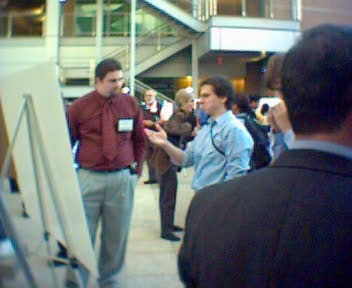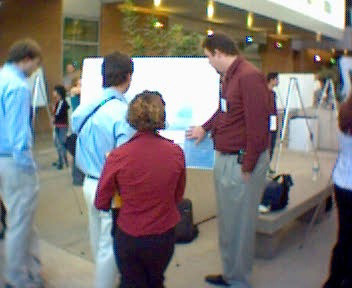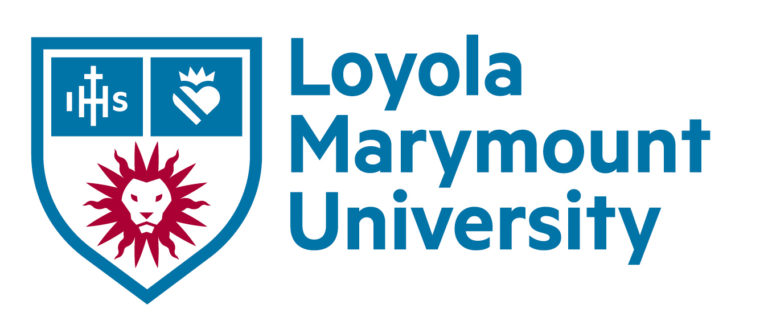Research
Grants Awarded: External
Dionisio JDN. Undergraduate database systems course. Google App Engine Education Award. Fall 2012.
Dionisio JDN, Toal R. Cultivating an Open Source Software Culture Among Computer Science Undergraduate Students. National Science Foundation (NSF) Course, Curriculum, & Laboratory Improvement (CCLI) Program, Award No. 0511732 (100 funded out of 727). August 2005–August 2009.
Grants Awarded: Internal
Dionisio JDN. Inversion of Immersion: How Wearable Technologies are Reversing Virtual Reality. Seaver College of Science & Engineering Equipment Grant 2014.
Dionisio JDN, Siniawski M. Streamlining the Implementation of Standards-based Grading. Loyola Marymount University Academic Technology Grant 2013–2014.
Dionisio JDN, Gilbert R, Forney A, Dorin PM. Mapping the Distributed Self. Seaver College of Science & Engineering Equipment Grant 2013.
Siniawski M, Dionisio JDN. Design and Pedagogical Value of a Standards-based Grading System for Undergraduate STEM Education. Loyola Marymount University Center of Teaching Excellence R. Patricia Walsh Scholarship of Teaching & Learning Grant 2012–2013.
Open Source Software Projects
GRNsight
GRNsight is a web application and service for modeling and visualizing gene regulatory networks, designed and developed in collaboration with Dr. Kam Dahlquist.
Identity Mapping Project
The Identity Mapping Project (IMP) is a survey application for assessing online media users’ expressions of identity, designed and developed in collaboration with Dr. Richard Gilbert.
XMLPipeDB
XMLPipeDB is an open source tool chain for importing XML data into relational databases, designed and developed in collaboration with Dr. Kam Dahlquist. It includes GenMAPP Builder, an application for creating GenMAPP database files from UniProt and Gene Ontology (GO) data sets.
LMU Diabolical
LMU Diabolical is a database back-end with a web service for a hypothetical role-playing game. This project was supported by a Google App Engine research grant. It is currently used by Interaction Design students as a “ready-to-go” web service on which web front ends can be built.
Headmaster
Headmaster is a student information system with a RESTful, service-oriented architecture. It is intended to include built-in support for standards-based grading.
Quo
Quo is a programmable social network status “demultiplexer”. It is meant to receive social network status posts and dispatch it automatically to different networks, with each destination network having a programmable pipeline that transforms the post according to that network’s rules and constraints.
Recourse
Recourse is set of teaching methods that integrates elements of open source development (and good software engineering in general) into the undergraduate computer science curriculum. The teaching methods are accompanied by a hardware/software infrastructure that provides electronic and automation support for Recourse.
Partial support for this work is provided by the National Science Foundation’s Course, Curriculum, and Laboratory Improvement (CCLI) Program, Award No. 0511732.
- A report on Recourse was delivered at LMU’s Center for Teaching Excellence (CTE) on April 24, 2008.
- Recourse was part of the NSF CCLI Showcase for the 39th ACM Technical Symposium on Computer Science Education, a.k.a. SIGCSE 2008, held from March 12-15, 2008 in Portland, Oregon.
- A poster on Recourse was presented during the Scholarship of Teaching and Learning (SoTL) Showcase Week at Loyola Marymount University on September 25, 2007.
- Work on Recourse has been published in the June 2007 issue of ACM SIGCSE Bulletin.
- A similar talk, with minor updates, was also given at Loyola Marymount Univeristy’s President’s Day 2006 (Session B6) on March 18, 2006
- Early talk on Recourse, presented to the Los Angeles Chapter of the ACM on October 12, 2005
OpenJSGL
OpenJSGL reimplements key parts of OpenGL in JavaScript to allow 3D graphics in a Web browser without plug-ins. OpenJSGL uses the <canvas> tag as its viewport, and works in browsers that support <canvas>, such as Firefox, Safari/WebKit, and Opera.
-
Andrés Buriticá, who started OpenJSGL as his undergraduate
computer science senior project and hopes to continue the work for his
masters degree, gave a talk on OpenJSGL at the
2007 Southern California Conference on Undergraduate Research (SCCUR)
at Cal State LA
on November 17, 2007. You can download a PDF version of his presentation
from
this link
(2 megabytes). A couple of photos from the conference are shown below:


CMSI 601 Capstone Projects
Spring 2008
-
Kimiko Odachi Schmidt,
Texture-Map-Based Sound Synthesis in Rigid-Body Simulations
- A poster of this work was presented at SIGGRAPH 2008 in Los Angeles, California
-
The poster was recognized as one of
25 semifinalists
at the conference’s Student Research Competition (note the
yellow badge in the photos below)


Fall 2007
- Ryan Nakamoto, An Analysis of Median Filtering Algorithms for Space and Airborne Sensor Imagery
Fall 2006
-
Joe Boyle,
Applying Agile Software Development Practices to a Scripting Language
Environment
- t-unit is available on Google Code
-
David Hoffman,
Polygons On A Plane: Modified Rubine Approach To Gesture Recognition
For Real-Time Sketching Applications
- POAP is available on SourceForge
-
Jeffrey Nicholas,
GMB 2.0: A System for the Creation of GenMAPP Gene Database Files
- GenMAPP Builder (GMB) is part of the XMLPipeDB project, available on SourceForge
Batchboard
Batchboard is an authoring/scripting application that exposes traditional command-line, stream I/O-based programs as graphical objects that can be operated upon using direct manipulation. Batchboard consists of two distinct applications: an authoring application scans available programs and analyzes available documentation such as command-line help and man pages to build a structured library of programs. The second application is a visual scripting environment, which uses the library produced by the authoring application to allow the user to browse and construct scripts via direct manipulation.
-
Michael Smith, my Summer 2005 research assistant, presented the Batchboard
project as a poster at the
2005 Southern California Conference on Undergraduate Research (SCCUR)
at UC Riverside
on November 19, 2005. You can download a PDF version of the poster from
this link
(9.6 megabytes; formatted for a 4⨉3-foot display). Photos from the
poster session are shown below; sorry for the low quality, but all we had
was a cell phone camera...




